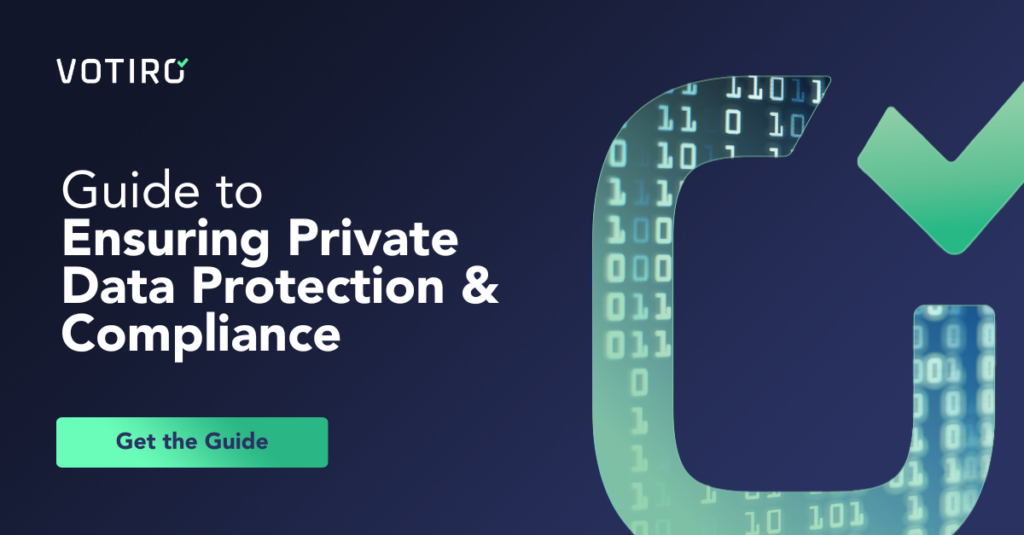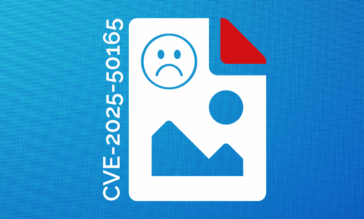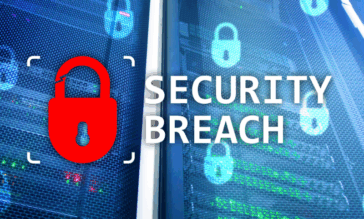Achieving Privacy Compliance: Essential Tactics for Today’s Businesses
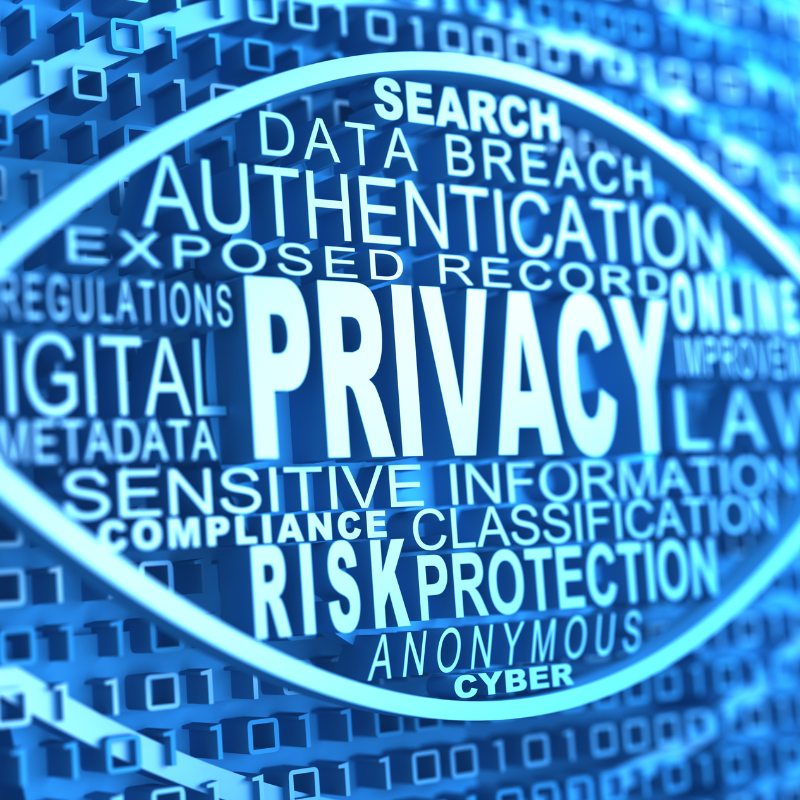
Consumer concern about data privacy has driven many new privacy regulations, many of which you can learn about here, including the General Data Protection Regulation (GDPR). It’s no surprise that in 2024, companies are collecting massive amounts of information on consumers at every turn, from their home utility setup to receiving healthcare at their local doctor. Even less surprising is that almost 84% of consumers are concerned about the safety and privacy of their data collected and utilized online.
Most consumers believe businesses routinely misuse this data, driving them to press their governments for stronger controls. This pressure has led to numerous privacy regulations for businesses to follow, and likely, many more will come in the future. As it stands, companies need to stay updated with changes in privacy laws, now and into the future. By ensuring that their data handling practices remain compliant, they can safeguard against potential legal and financial repercussions.
However, keeping track of every new regulation can take time and effort that’s not readily available in every organization. By taking a proactive approach to data security, organizations can foster a culture of compliance and trust, making it easier to adapt to new regulations. Not only for security purposes, a proactive approach helps organizations manage their data responsibly, reinforcing their reputation among clients and stakeholders as a secure and trustworthy entity.
Read on to learn why ongoing commitment to stringent data security measures is essential in a world where privacy concerns are increasingly at the forefront of consumer minds.
Everyone Has Compliance Issues
No organization is immune to the struggles of privacy compliance, regardless of size, industry, or location. Every entity faces the challenge of navigating a complex landscape of privacy regulations and industry-specific rules.
When considering data privacy compliance, the underlying goal is keeping sensitive data private. Each regulation may have different sets of data it wishes to keep private or specific nuances of how to accomplish this. Still, good data privacy practices and tool adoption can cover a large chunk of the requirements. By following these, organizations can quickly adapt to new legislative developments and prepare for inevitable changes to compliance requirements.
Understanding Regulatory Requirements
Regulatory compliance is a global problem. Laws like the GDPR affect companies across borders, mandating strict data protection protocols beyond their immediate locations for any organization storing data of European customers. Beyond GDPR, those handling credit cards have PCI-DSS, and even industries such as healthcare have specific rules in HIPAA for how data privacy is maintained.
These rules also include data sovereignty rules requiring organizations to localize data storage within specific national borders, complicating global operations. Integrating privacy as a core part of operations makes ensuring sustained compliance and protecting organizational integrity easier.
The Cost of Non-Compliance
The consequences of non-compliance are severe, including hefty fines and damage to reputation. This necessitates adaptive compliance strategies that evolve with changing laws. Fines for regulations like GDPR and the California Consumer Privacy Act (CCPA) are significant, with organizations facing substantial fines. For example, penalties under GDPR can reach up to 4% of annual global turnover or €20 million, whichever is higher. Additionally, non-compliance can increase insurance costs as companies are deemed to be at higher risk.
Failure to comply operationally can cause severe disruptions. Mandatory audits and the need for corrective measures can drain resources and divert attention from core business functions. Non-compliance may also result in lost business opportunities, especially in sectors where regulatory compliance is a prerequisite for partnerships and deals.
Over the long term, reputational damage from non-compliance can profoundly affect customer trust and corporate image. This erosion of trust can be difficult to repair and may affect investor relations, leading to a decline in stock prices as market confidence wavers.
Securing Data to Secure Peace of Mind
Securing data transcends basic compliance; it is fundamental to safeguarding an organization’s future and the trust of its stakeholders. Robust data security measures are essential to protect against breaches and unauthorized access, ensuring that sensitive information remains protected. This protection not only helps organizations avoid costly penalties and losses associated with data breaches but also reinforces the reliability and integrity of the company in the eyes of customers, partners, and investors, ultimately securing peace of mind for all parties involved.
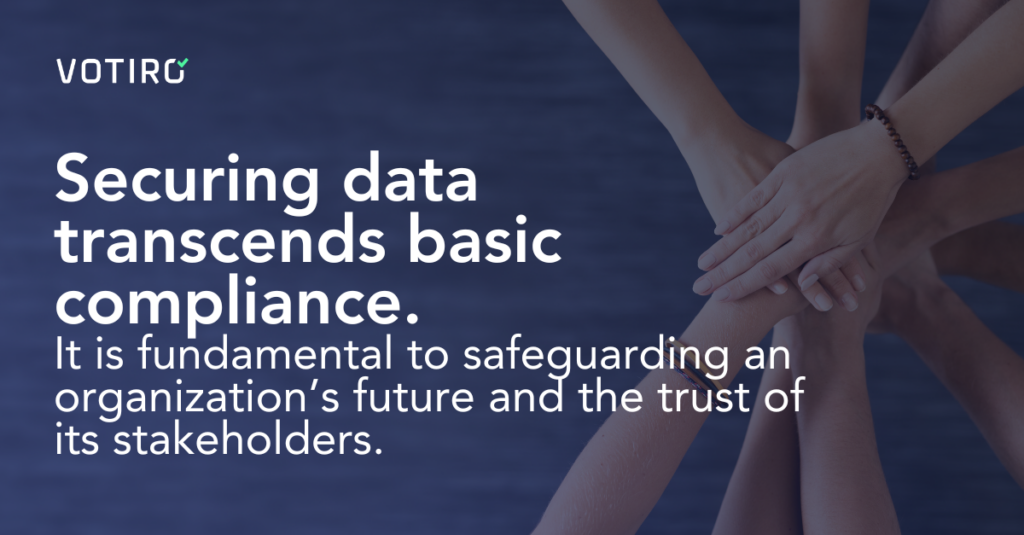
Proving Compliance
Real-time monitoring and alerts are central to maintaining continuous compliance. Automated tools are instrumental in overseeing compliance efforts continuously, providing instant alerts when discrepancies or issues arise. This capability allows organizations to proactively address potential compliance issues before they can escalate into more significant problems during audits.
Creating audit-ready compliance reports helps prove compliance is being maintained in the organization. These reports must stand up to scrutiny, which requires precision and consistency, which automation can help deliver. By reducing human error in data collection and report generation, automation helps ensure that reports are accurate and reliable. Automation standardizes these processes across different parts of the organization, fostering consistency regardless of the department or geographic location involved.
Automated tools that integrate multiple data sources facilitate comprehensive data management, creating a unified and thorough compliance report. These tools also analyze historical data, which is invaluable in predicting and mitigating future compliance issues. By understanding past compliance performance, organizations can better tailor their strategies to prevent similar challenges, enhancing overall compliance health and security posture.
How to Navigate the Maze of Privacy Regulations
Data Detection and Response (DDR) solutions can significantly aid in meeting compliance mandates by automating the detection and remediation of risks associated with private data. DDR technology that’s designed for modern threats and data collection should ensure that all data within an organization is consistently scanned and evaluated against compliance standards, automating the enforcement of data security policies. By integrating such DDR tools, organizations can effectively monitor data in real-time, ensuring that sensitive information is appropriately handled and reducing the risk of non-compliance penalties. Moreover, DDR solutions generate comprehensive logs and reports crucial during compliance audits, showcasing a clear, documented trail of data handling and security practices.
More advanced forms of DDR also include technologies to eliminate malicious code in data. By eliminating this code, organizations reduce the risk of malware infections that can disclose sensitive information and lead to non-compliance. This helps bolster the baseline of security and privacy, reducing the risk of an incident and the consequences associated with it.
Future-Proof Your Compliance Strategy with Votiro DDR
Votiro helps organizations take control of their data privacy and meet compliance mandates with our Zero Trust DDR platform. Votiro proactively defends against file-based threats and manages real-time privacy and compliance from a single platform. Our multi-faceted data security solution provides in-depth data analytics (common entry points, file types, targeted users, etc.) to better inform security teams of emerging and ongoing digital threats while preparing them for future attack methodologies.
With Votiro’s Zero Trust DDR technology, you can enhance data security by sanitizing malicious files traveling through various channels like file sharing, emails, and collaboration platforms. Simultaneously, you can detect and mask sensitive information in real-time according to predefined organizational rules. This process helps prevent data leaks and breaches while ensuring that organizations and security teams maintain robust control over their data defenses.
Sign up for a one-on-one demo of the platform to learn more about Votiro’s Data Detection and Response capabilities and how we can keep you compliant. You can also try it free for 30 days and see for yourself how Votiro can proactively defend your PII, PCI, and PHI in 2024 and beyond.
News you can use
Stay up-to-date on the latest industry news and get all the insights you need to navigate the cybersecurity world like a pro. It's as easy as using that form to the right. No catch. Just click, fill, subscribe, and sit back as the information comes to you.
Sign-up Here!
Subscribe to our newsletter for real-time insights about the cybersecurity industry.
